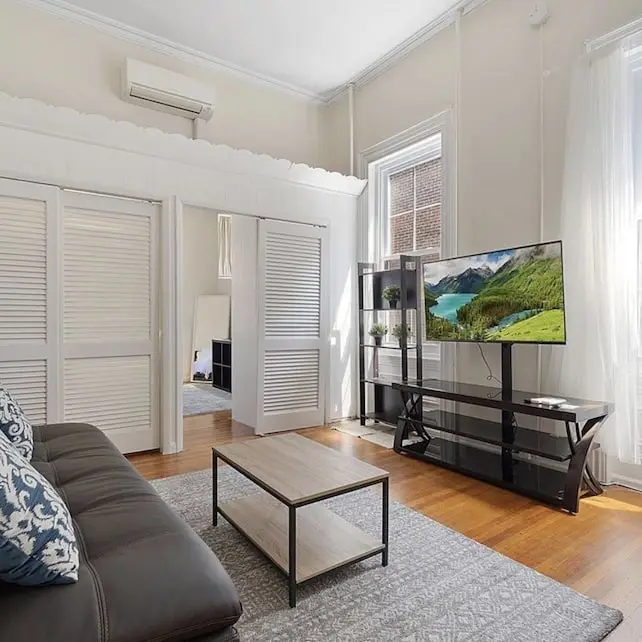
Humza Zafar used to work as an engineer. But he was always interested in real estate, was always reading Bigger Pockets, fascinated with the BRRRR method (as in buy, rehab, rent, refinance, repeat).
In 2019 he bought his first duplex for $175,000. It was a hot mess.
He ended up spending another $100k to fix it up. Eventually he got some tenants in there and was pocketing about $3,600 a month, passively.
No problems, no headaches, it was all gravy.
Then Covid hit. And since his tenants were college students, they all bounced and moved back home.
So Humza decided to list the rooms on Airbnb.
“To my surprise,” Humza recalls, “my cash flow went from $600 per bedroom to almost $800 to $1,000 per bedroom. That was a very big surprise to me… that there was that much demand in the small city I’m from.”
Windsor, Ontario, that is – which is just across the river from Detroit. Which, if New Jersey’s the Armpit of America, I feel like Detroit’s the Sweaty Underboob.
Anyways.
At that time, Humza was living in Philly.
Why not try the same thing there? Okay… how? Humza didn’t have another 20% to throw down on an $800,000 house.
And even if he did, the cash-on-cash return wouldn’t have been all that great.
Too much risk, too little reward, and it would’ve taken him a long long time to save up to buy a property outright.
Was there a workaround? Sure was.
Humza ran into a guy named Sean Rakidzich online, who teaches a concept called rental arbitrage.
That’s where you basically sign a long-term lease with another landlord and get their permission to list the property as a short-term rental on Airbnb. Bingo.
Humza started cold calling landlords; and, after 30, 40, 50 no’s, he finally got someone to agree to it.
It was a four-bedroom townhouse in Philadelphia, renting for around $2,200 a month.
Once he learned the ins and outs of Airbnb, Humza was averaging roughly $50 per bedroom per night.
So $200 a day, or $6,000 a month. Neat peas.

In the beginning, Humza and his wife did everything themselves. Listings, customer support, furnishing, even the cleaning once guests checked out.
You can watch all the YouTube videos you want, but the real learning takes place when you actually go out and do it: when you trudge through the mud and get yourself a little dirty.
Time for property two.
Back to cold calling. Landlords, individual home owners, apartment complexes, property managers – you name it, Humza hit ’em up.
He picked up a studio and a one-bedroom.
But there were only so many hours in the day, right?
Like, how many more IKEA dressers could Humza and his wife stay up half the night putting together? How many more toilets could they scrub?
They needed to reach critical mass so they could employ full-time help.
They scrambled, adding another six bedrooms in the next coupla months.
Hired a supervisor who then managed several housekeepers, freeing up their time to focus solely on expansion. And that they did.
First in Dallas, and then elsewhere.
Next, they hired some VAs to deal with the day to day minutia: complaints, reviews, sliding scale pricing, putting out fires, all that jazz.
Rinse, repeat, rinse, repeat.
Fast forward to today: Humza’s pulling in about $5 million a year on Airbnb, without owning any of the properties himself.
Wanna learn from him? Great, but it’s gonna cost ya.
He sells an Airbnb Accelerator course for $5,000.
If you want mentoring with it, the price jumps all the way up to $17,500.
Yeouch! Think I’ll just stick to digital real estate.